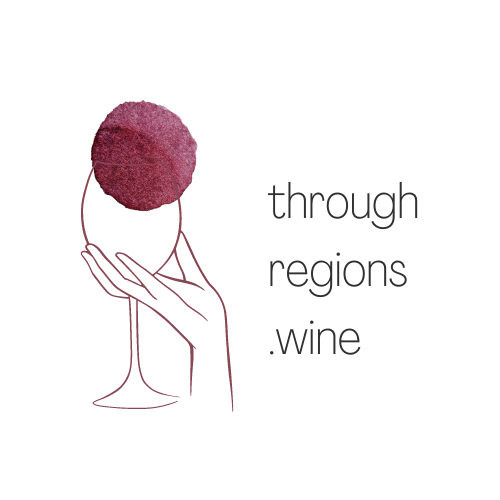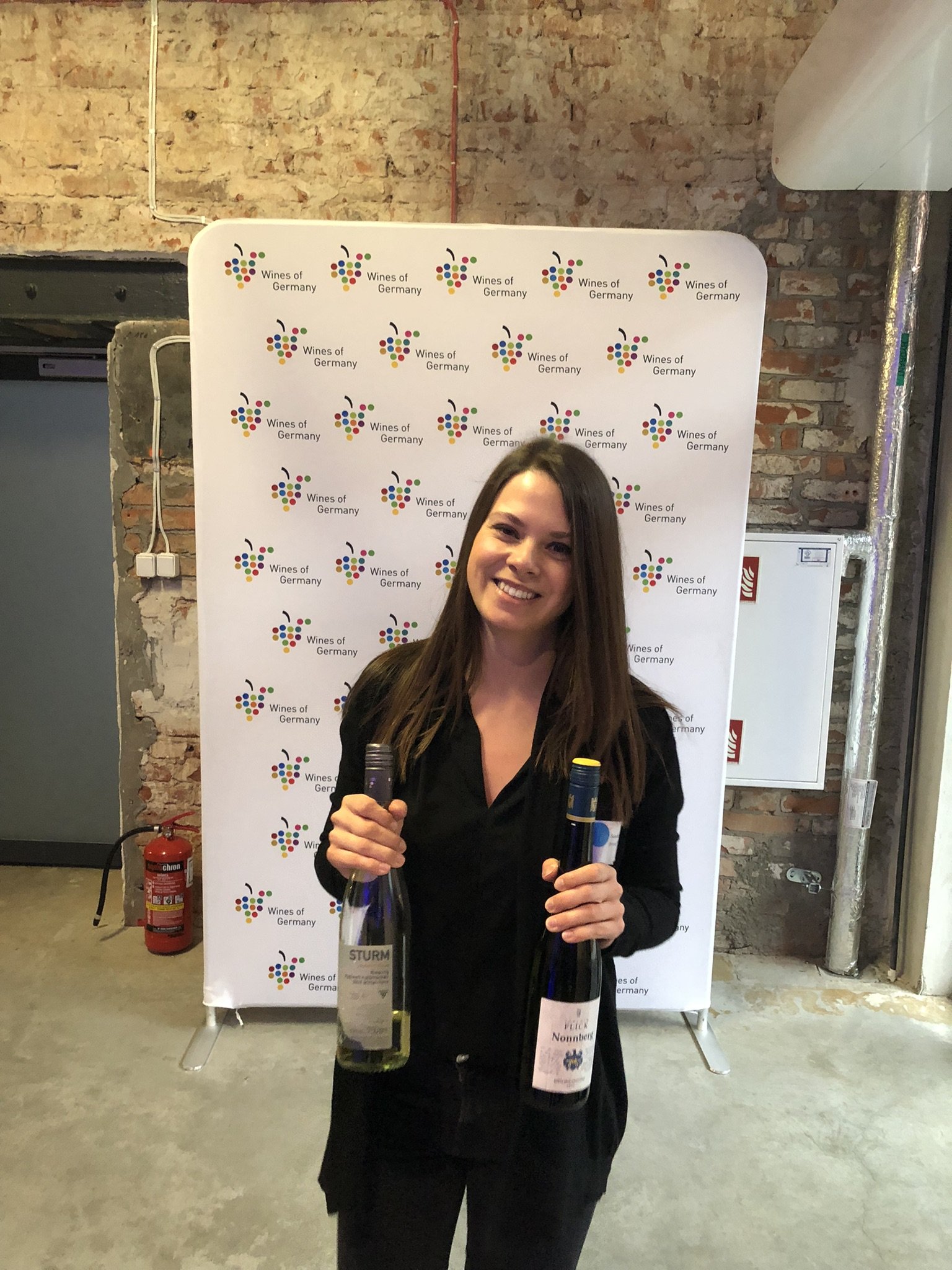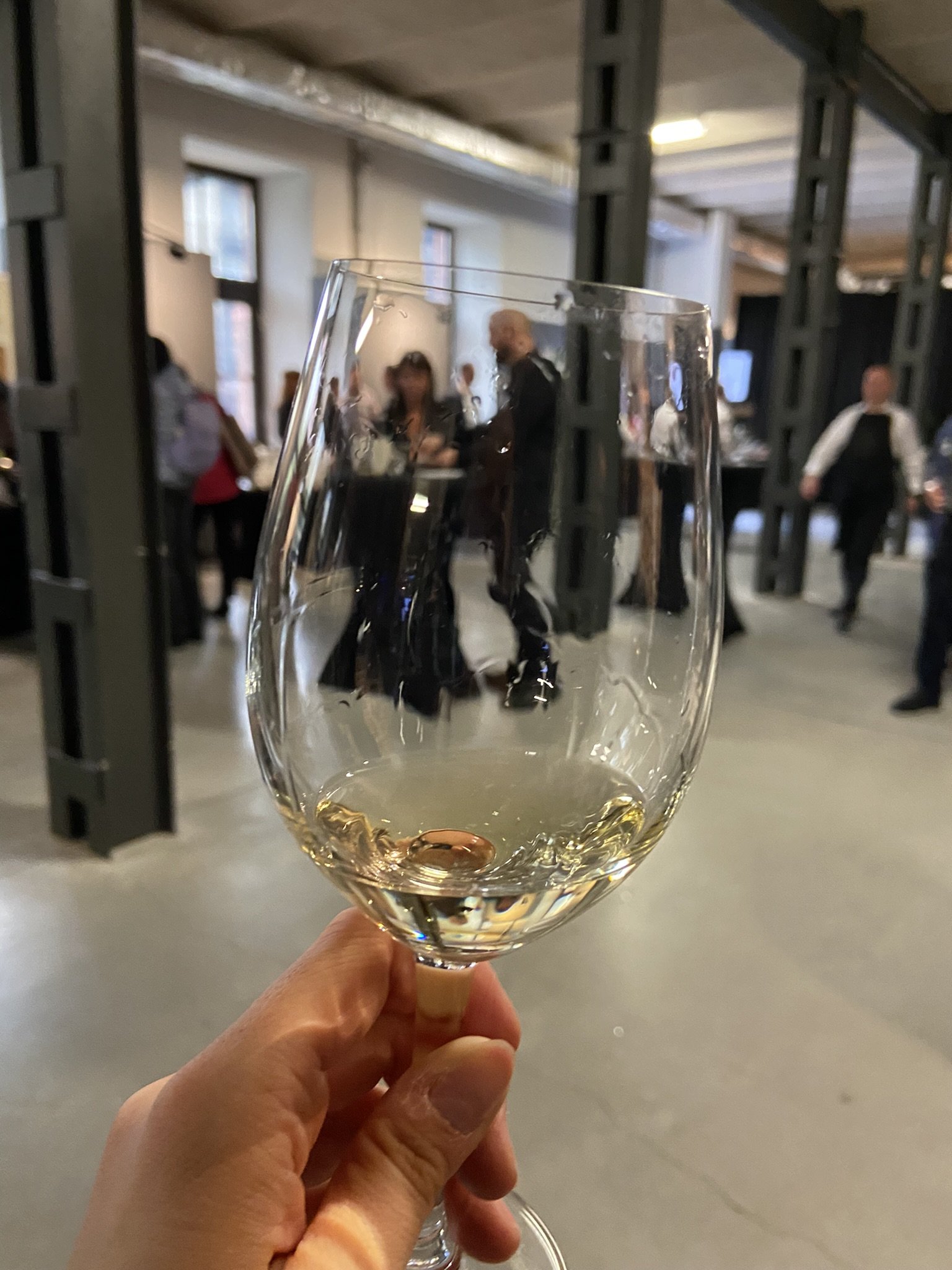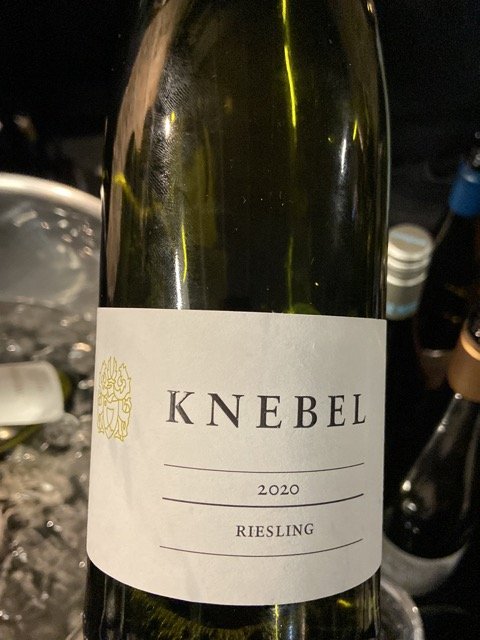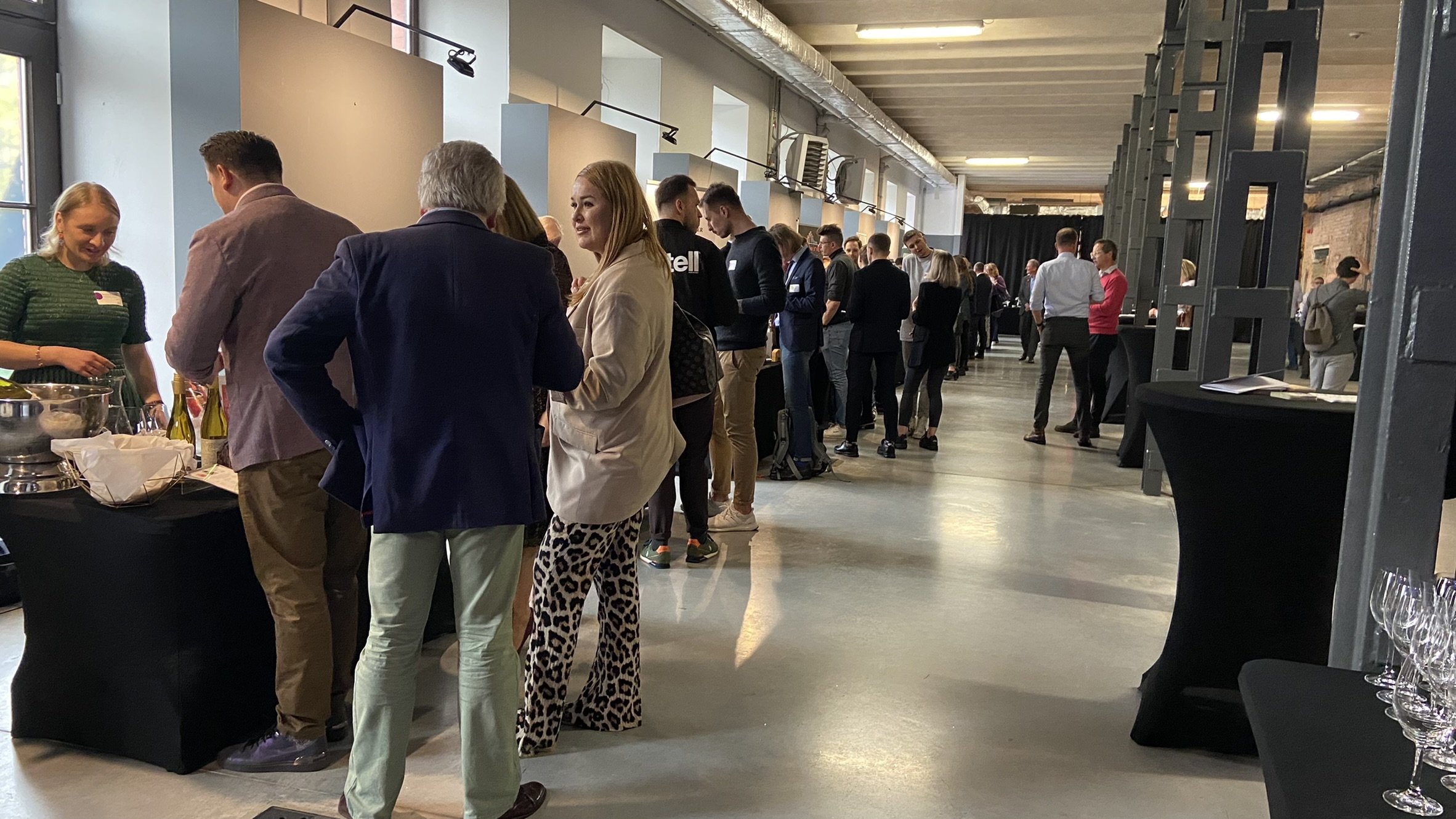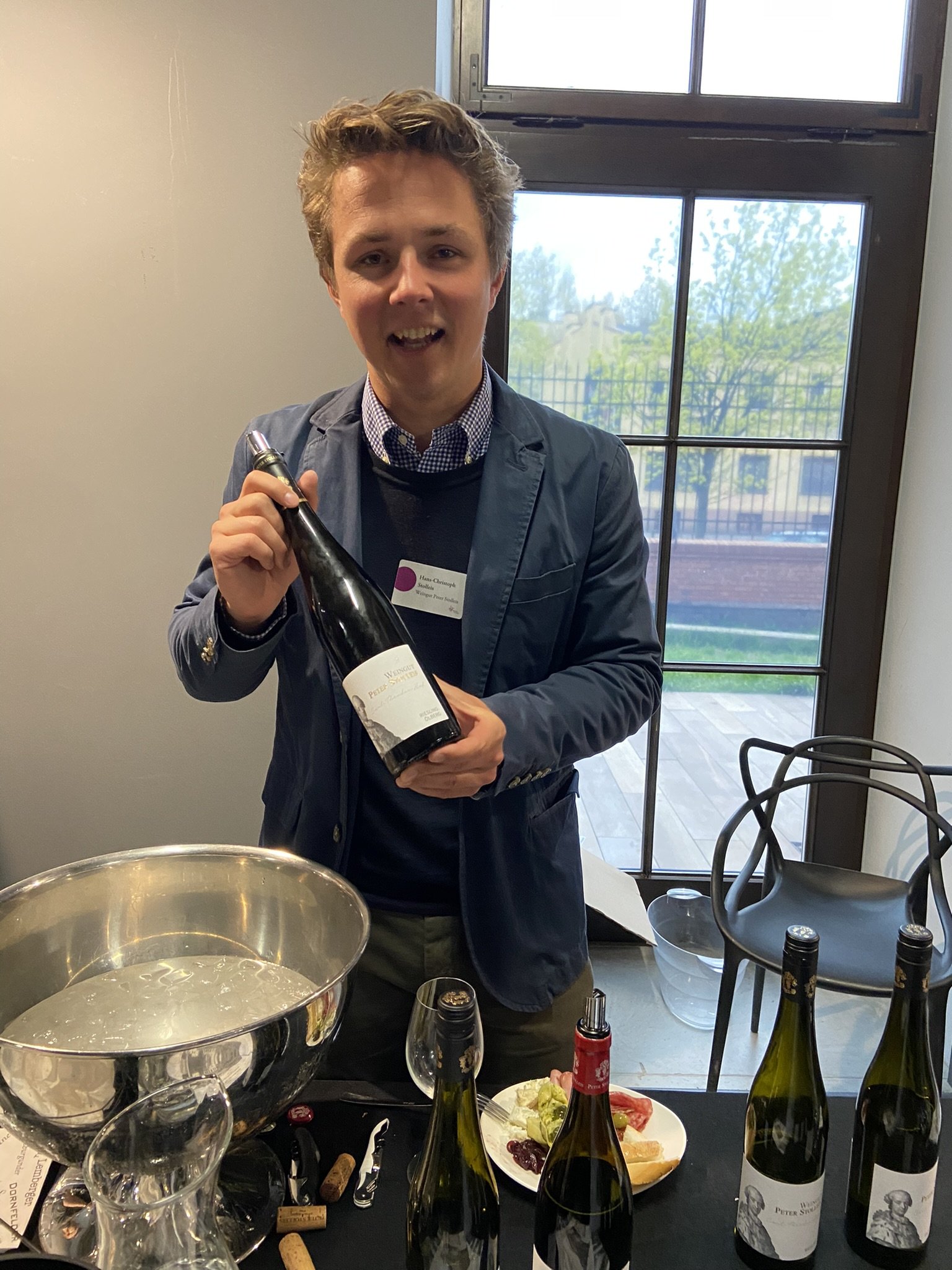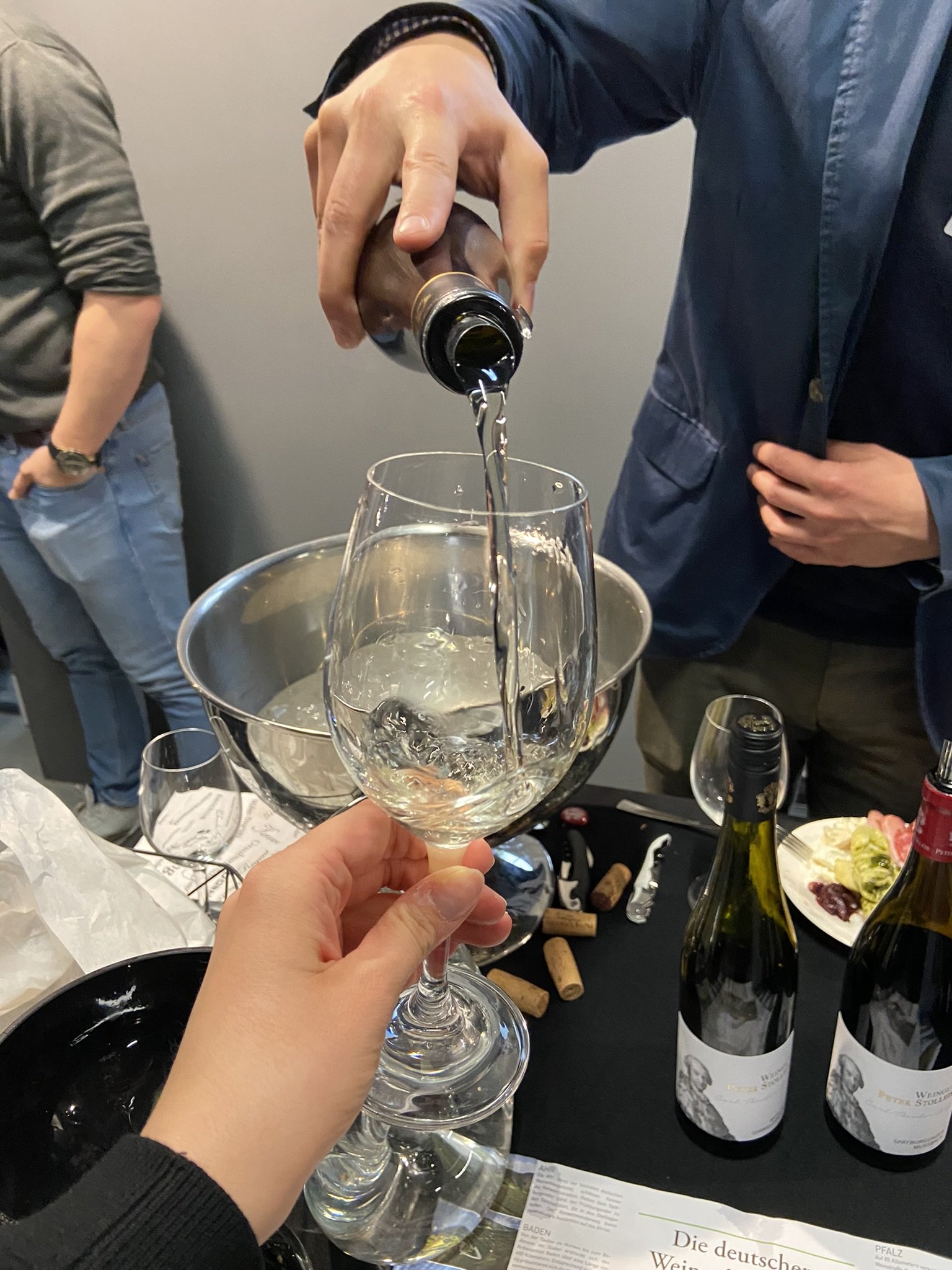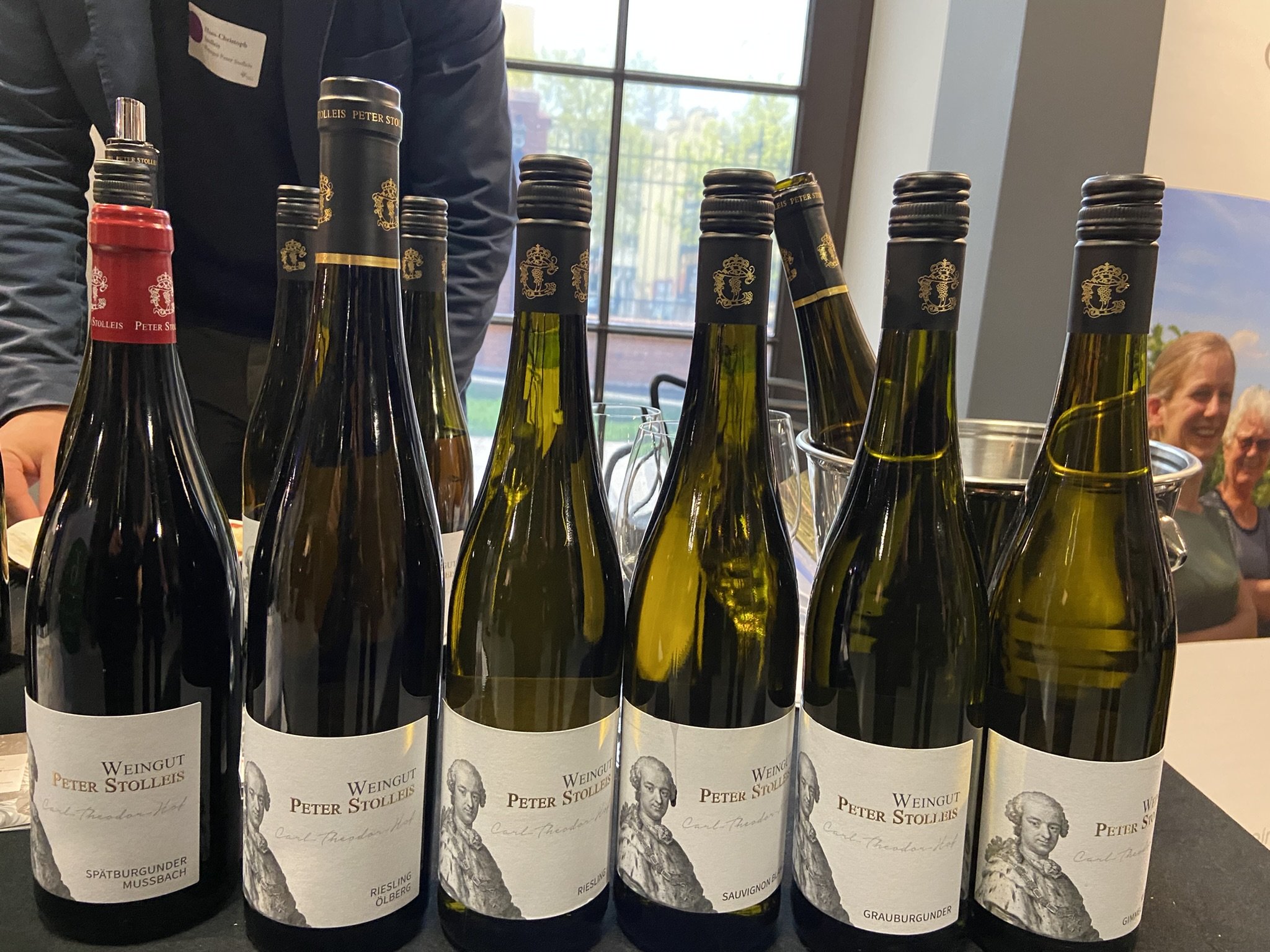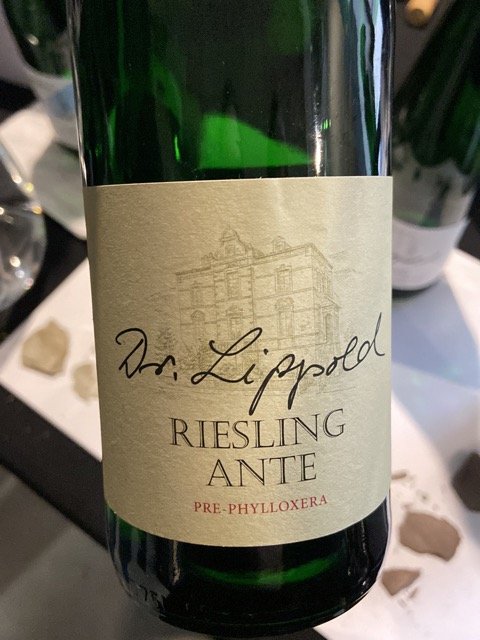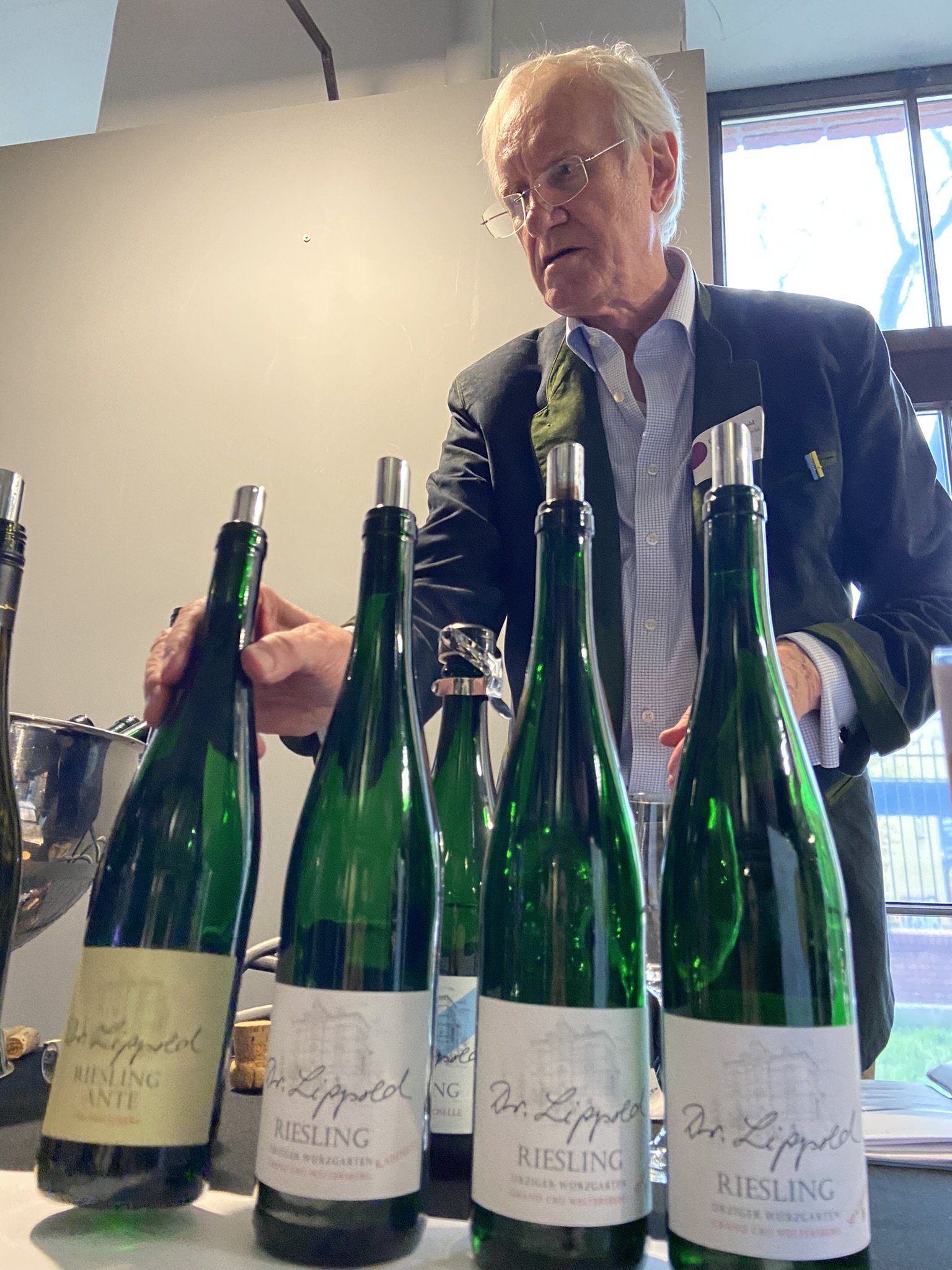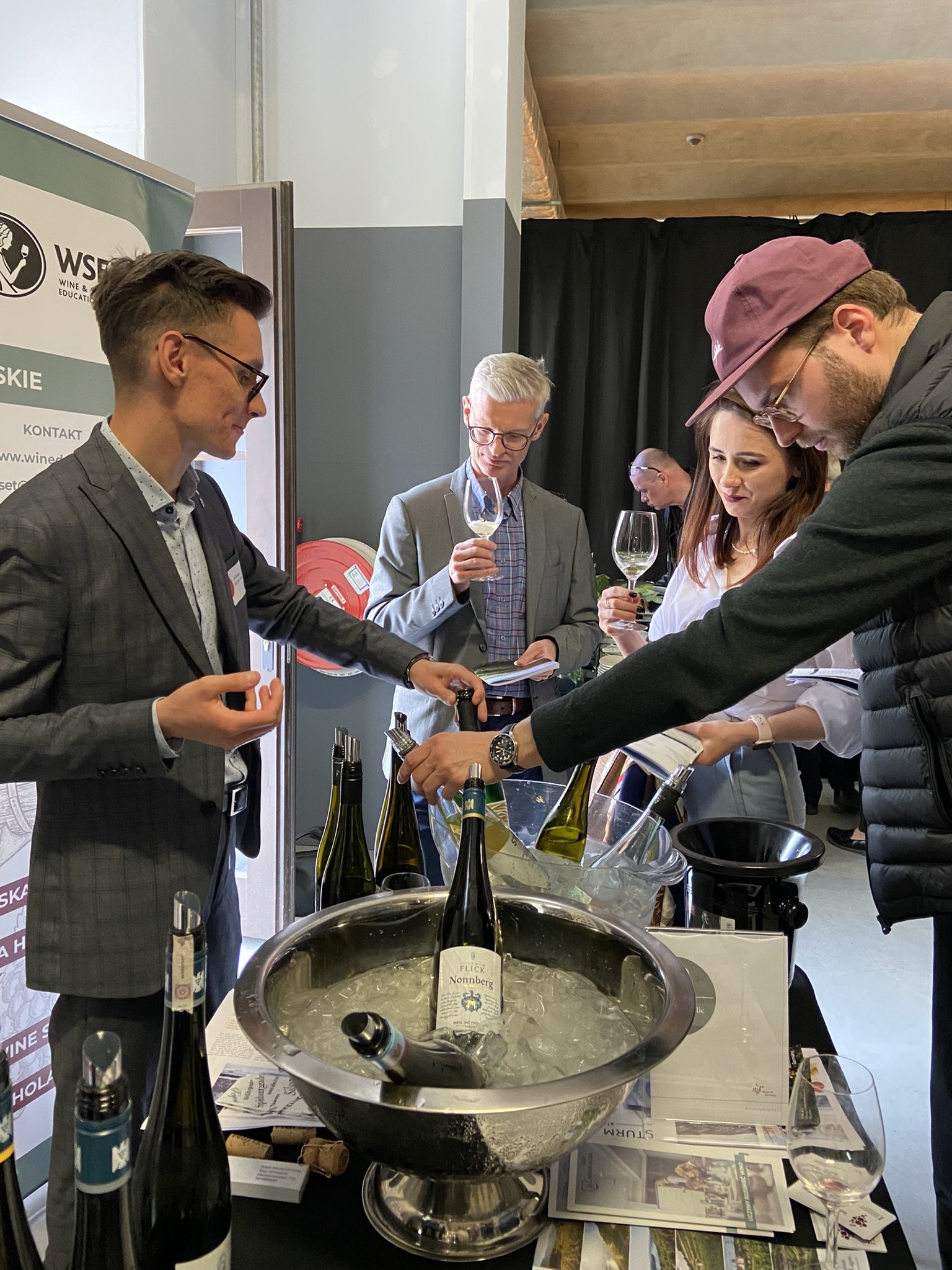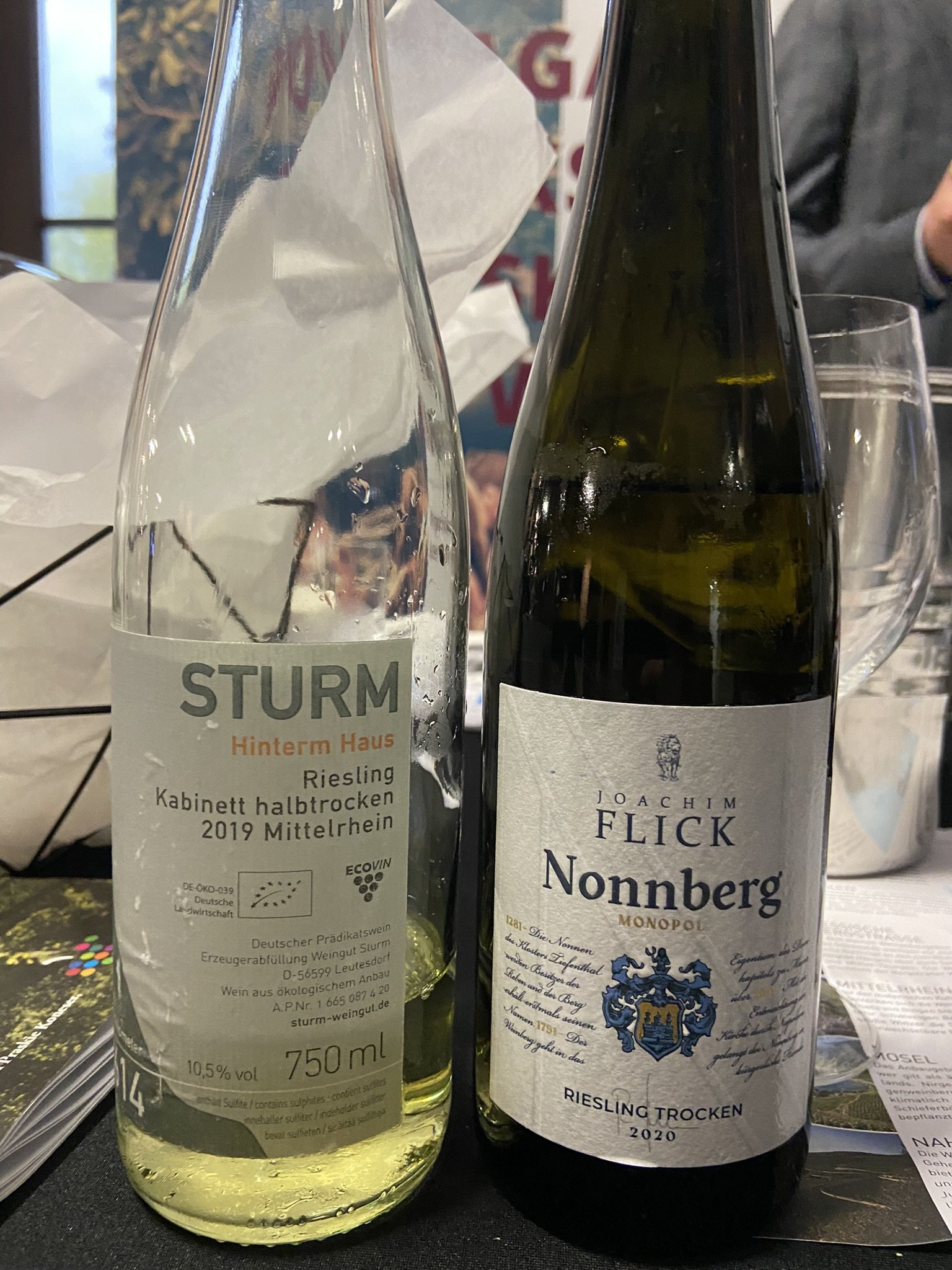Germany. Riesling&Co. German Wines Festival
After 2 years the wine industry met again with German wines in Warsaw! The German Wine Institute (DWI) organised the 12th edition of Riesling&Co. German Wines Festival with more than 20 producers taking part in the table-tasting of high quality German Rieslings and other wines. Here come my highlights from the festival.
Entry level Riesling from Matthias Knebl from Mosel “von den Terrassen” 2020 – which means “from the terraces” was one of the wines that caught my attention. This parcel comes from a very steep slope along the Mosel river. Wine undergoes spontaneous fermentation with wild yeasts. Depending on the weather this process can take a very long time – last year it took 6 months! The style is creamy with umami accents and a small amount of sulphur dioxide added to the wine ensures that the evolution is faster. On the nose mango, baked apple, minerality, herbal notes, musk, wax and honey. Lovely wine for an entry label!
Another excellent label from Knebl - Uhlen GG Riesling 2019 comes from the “Uhlen” parcel. It also undergoes spontaneous fermentation in 20% of acacia barrel which adds an extra layer of complexity to the wine. The vintage 2019 is considered exceptional in Germany. On the nose you will find lemon grass, pears and herbs – I actually picked up notes of juniper. On the palate it is exuberant and very supple, slightly sweeter on the nose than on the palate, with good minerality and a touch of caramel on the finish. Very complex wine with an amazingly long finish. You have to try it! In Poland it is distributed by Maciej Sokołowski from Poniente from Poznań.
Another producer that I would highlight was Weingut Peter Stolleis. I especially enjoyed his Königsbacher Ölberg Riesling 2020 from one of the vineyard’s “Grand Cru” Riesling sites, where the soil is limestone and lees. Picking occurred in three rounds – prepick, second 10 days later and the last one after 6 days. First pick was just to reduce the quantity of grapes. Fermentation was spontaneous 50% in stainless steel and 50% in a neutral cask of 12 000 litres. What is interesting is that the oak comes from Pfalz. 10 months aging on lees. On the nose ripe yellow fruits, mirabelle plums, yellow apple, sour ananas, white flowers, lilac, honeysuckle. Very exuberant on the palate, oily but not overly heavy. Great acidity and a long finish.
While visiting the festival you shouldn’t overlook bottles from an older gentleman - Dr. Lippold, who last year celebrated his 50th harvest. The whole selection was quite impressive, but I especially liked the 2016 Riesling Hochgewachs Urziger Würzgarten – Neuberg ANTE. Würzgarten, which is one of the best sites in Mosel, gives lovely aromas of honey, honeysuckle, wax, slightly creamy and juicy on the palate with a very nice acidity to balance the taste.
Another bottle not to miss was 2009 Riesling Ürziger Würzgarten – Weltersberg Auslese, which felt quite sweet and dense on the palate. Dr Lippold explained that this is not a typical Mosel style and he felt he was one week too late with the picking because he was traveling at the time. The wine turned out great in my opinion, but Dr. Lippold would like it to have a tad bit more of acidity. Very rich on the palate, glycerol like with distinct quince and white flowers notes. Quite big wine, but still nicely offset with the acidity that keeps it well together. Very nice!
The last highlight that I would like to tell you more about is the wine from Sturm, small producer from Mittelrhein. The winemaker, Martin Sturm, produces very balanced wines from 4.1 hectares of land located along the Rhine river from 614 km of the river. All wines are planted on steep slopes, harvest and all the work in the vineyard is solely manual, which adds to the high quality of the wines. The first selection of the grapes initially takes place in the vineyard. Strum produces mainly Riesling, but also Sauvignon Blanc, Chardonnay, Pinot Noir, Syrah and Kerner - a white variety that is more and more appreciated for its quality. When it comes to Strum it’s important to mention soils - mainly grey and blue slate, but also volcanic soils due to the Laacher volcano, now a volcanic lake Laacher see. The diversity of soils is important here because each of Strum wines comes from individual plots that strongly differ in soil composition, thus the wines have different and distinct character. In case of 2019 Riesling Kabinett Halbtrocken (semi-dry) that I especially enjoyed and found perfectly balanced, we have 50 year old vines that give a concentration of aromas and in addition a small harvest per hectare which contributes even more to the high quality of the wine. This particular bottle comes from the Hinterm Haus parcel with 10.5% abv. and 13.2 g of residual sugar while maintaining over 8 g of acidity, giving it a good balance between sweetness and acidity. On the nose you will find lots of tropical and stone fruits aromas including peaches, but also citrus, like lime, some green apple, sweet pear and white flowers with a very pleasant long finish. A wine ideal to drink on its own, but also with more intensely spiced dishes or poultry. In Poland you will find Strum wines at Republika Wina. Jan Knąber - thank you for the tasting!
